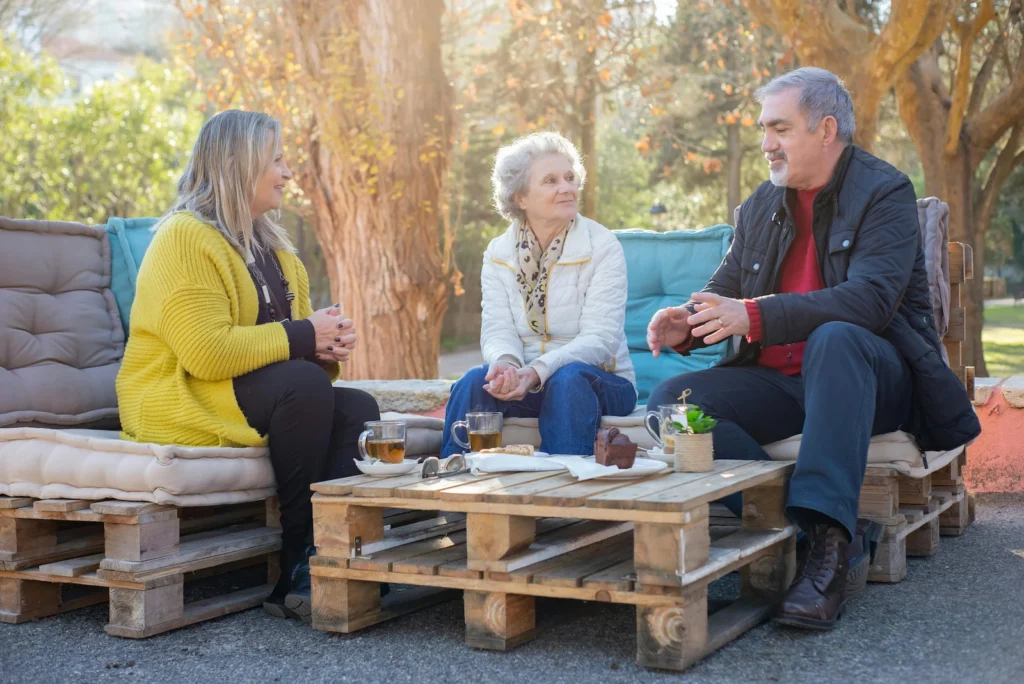Updated: November 17, 2025
Keeping your brain in top shape is more important than ever. With daily stress and aging, many of us worry about memory loss. The good news is you can fight back by incorporating games to improve memory into your routine. In this post, you’ll find 10 fun and effective games to improve memory to boost your brain. We back our tips with solid science and fresh data. Read on to discover how you can keep your mind sharp, one game at a time.
In our fast-paced world, our minds are under constant stress. Studies show that one in three people born in the UK may develop dementia. That is why keeping your brain healthy is so important. Today, digital tools and simple games to improve memory offer new ways to fight cognitive decline. This post covers research-backed tips and easy games to improve memory that can help improve recall, focus, and mental agility. You will learn what science says, discover emerging trends, and get clear, actionable tips. Let’s dive in and explore how you can boost your brain power!
The Science Behind Memory Activities
Our brain is like a muscle that can grow stronger with the right exercise. This growth is called neuroplasticity—your brain’s ability to form new connections and rewire itself. By challenging your mind, you build a cognitive reserve that helps you fight memory loss.
How Neuroplasticity Supports Memory Activities
- Neuroplasticity: Your brain forms new neural connections when you learn or solve puzzles.
- Cognitive Reserve: A strong reserve helps delay memory loss and age-related decline.
Research Insights on Games to Improve Memory
- Studies show that regular brain training boosts levels of brain-derived neurotrophic factor (BDNF), which supports neuron growth.
- Tasks like the n-back game have been found to improve working memory.
- Consistent mental challenges lead to measurable improvements over time.
Emerging Trends in Digital Memory Activities
- Personalized brain training apps now use artificial intelligence. These apps adjust the difficulty based on your performance.
- The digital brain-training market is growing rapidly, with predictions of significant market value increases in the coming years.
How Memory-Boosting Games Work
Memory games work by stimulating your brain. When you play, your brain forms new connections, which strengthens your memory and improves focus.
- Attention & Recall: Games force you to pay attention and recall details.
- Speed & Efficiency: You learn to process information faster.
- Neural Pathways: Each game strengthens neural pathways, making your brain more agile.
Research shows that even short, daily sessions can boost your brain’s performance. Regular mental exercise leads to higher BDNF levels and a stronger brain.
10 Memory Activities and Games to Improve Memory
Below are 10 engaging activities, each with clear benefits and simple tips to get you started.
1. Language Learning Apps for Memory Improvement
Apps like Duolingo and Babbel make learning a new language fun. They boost your vocabulary and improve recall.
- Benefits:
- Enhances memory using spaced repetition.
- Activates multiple brain areas.
- Tip:
Use the app for 10–15 minutes daily. Aim to learn five new words each day.
2. Chess and Strategic Board Games that Help with Memory
Chess and other strategy games challenge you to plan and think ahead. They improve problem-solving and concentration.
- Benefits:
- Enhances strategic thinking and focus.
- May lower the risk of cognitive decline.
- Tip:
Join a chess club or play online. Play at least twice a week.
3. Musical Instrument Practice as Memory Activities
Learning an instrument works many parts of your brain at once. It improves memory, coordination, and listening skills.
- Benefits:
- Strengthens memory and attention.
- Boosts coordination and fine motor skills.
- Tip:
Choose an instrument you enjoy. Practice for 15 minutes daily, and consider online lessons.
4. Card Games for Memory Training
Card games like: Bridge, Poker, (especially Texas Hold’em) or Solitaire require you to remember sequences and plan moves. They are fun and good for your brain.
- Benefits:
- Improves short-term memory.
- Enhances pattern recognition and decision-making.
- Tip:
Play with friends or join a local card group. Try a new game once a week.
5. Pickleball or Learning a New Sport as Memory Activities
New sports like pickleball combine physical activity with mental challenge. They require strategy and coordination.
- Benefits:
- Increases blood flow to the brain.
- Supports neuroplasticity through physical exercise.
- Tip:
Try a sport that interests you. Aim for 30 minutes of activity three times a week.
6. Crossword Puzzles and Sudoku: Games to Improve Memory
Puzzles like crosswords and sudoku boost your logical and verbal skills.
- Benefits:
- Enhances verbal reasoning and memory retention.
- Helps reduce the risk of cognitive decline.
- Tip:
Set aside a fixed time each day for puzzles. Start with one puzzle daily and gradually increase the challenge.
7. Memory Card Matching Games for Visual Recall
These games challenge your visual memory by having you recall the location of matching pairs.
- Benefits:
- Improves visual memory.
- Enhances quick recall.
- Tip:
Play matching games online or with physical cards. Increase the number of pairs as you improve.
If you’re looking for a senior-friendly memory game for seniors, explore our dedicated guide with research-backed games and tips.
8. Dance and Aerobic Exercise as Brain and Memory Activities
Dance and aerobic exercise are excellent for both your body and brain. They boost memory through increased blood flow and coordination.
- Benefits:
- Increases BDNF levels.
- Enhances memory, mood, and stress relief.
- Tip:
Join a dance class or dance at home. Aim for 30 minutes of dancing twice a week.
9. Digital Brain Training Apps: Memory Boosting Tools
Apps like Peak, Lumosity, and NeuroNation offer puzzles designed to enhance various cognitive skills. Discover even more strategies to boost your brain power by reading this comprehensive guide on Games for the Brain.
- Benefits:
- Offers targeted exercises for attention, memory, and processing speed.
- Adjusts difficulty based on your progress.
- Tip:
Pick one app and use it daily for at least a month. Use its tracking features to monitor your progress.
10. Mindfulness and Meditation Practices for Better Memory
Mindfulness and meditation reduce stress and improve focus. They support memory by creating a calm mental state.
- Benefits:
- Lowers stress and anxiety.
- Improves attention and memory.
- Tip:
Start with guided meditation sessions for 10–15 minutes a day. Find a quiet space and focus on your breathing.
Tips for Incorporating Memory Activities into Your Daily Routine
Building a routine that includes these brain-boosting activities is simple. Here are some strategies:
Schedule Short Sessions of Memory Activities Daily
- Action:
Set aside 10–15 minutes daily. - Benefit:
Short, consistent sessions work better than long, infrequent ones.
Mix It Up
- Action:
Rotate between different activities. - Benefit:
Variety targets different brain skills and builds a stronger cognitive reserve.
Combine with Physical Exercise
- Action:
Pair mental games with a brisk walk or dance session. - Benefit:
Physical exercise boosts blood flow and increases BDNF levels.
Use Technology
- Action:
Choose apps with reminders and progress tracking. - Benefit:
These tools help you stay consistent and see your improvements over time.
Make Memory Activities Social
- Action:
Join clubs or online groups for games like chess or card games. - Benefit:
Social interactions enhance both mood and cognitive function.
Set Clear Goals
- Action:
Define small, achievable goals for each activity. - Benefit:
Clear goals keep you motivated and focused.
FAQ
- What are some memory activities?
Some effective memory activities include learning a new language, playing chess, solving crosswords or sudoku, practicing a musical instrument, participating in dance or aerobic exercise, and using digital brain-training apps like Peak or NeuroNation. These activities support cognitive health and help delay memory decline. - What activities improve memory?
Memory can be improved through activities that challenge the brain, such as language learning apps, chess, digital brain training apps, puzzles like sudoku, and musical instrument practice. These memory activities stimulate different areas of the brain and promote neuroplasticity. - What activities improve working memory?
Working memory can be enhanced through activities like n-back brain games, strategic board games, memory card matching tasks, and digital training apps such as Lumosity or Peak. These activities require the brain to hold and process information in real-time, strengthening working memory. - What activities can help improve people’s memory?
A wide range of activities can help improve memory. These include language learning, physical exercise like dance or sports, mindfulness meditation, crossword puzzles, and card games. The key is consistency—engaging in memory activities daily offers the best results. - How to practice memory activities?
To get the most out of memory activities, set aside 10–15 minutes daily, rotate different types of activities, and track your progress. Combining mental challenges with physical exercise boosts blood flow to the brain, enhancing memory benefits even further.Final Thoughts
Your brain is a powerful tool that can grow stronger with the right exercises. Daily mental challenges build neuroplasticity and increase your cognitive reserve. From language apps to dance sessions, these 10 activities offer simple ways to boost your memory. Combining mental games with physical exercise creates a balanced, healthy lifestyle.
Remember, consistency matters more than perfection. Start small and build your routine gradually. Try one new activity today and track your progress. Share your experience with us and join our community of brain enthusiasts.
To see how these games fit into the wider story of how memory changes in midlife, check out this in-depth article on boosting your memory after 40.
Take charge of your brain health now. Your future self will thank you for the daily effort you put in today.

